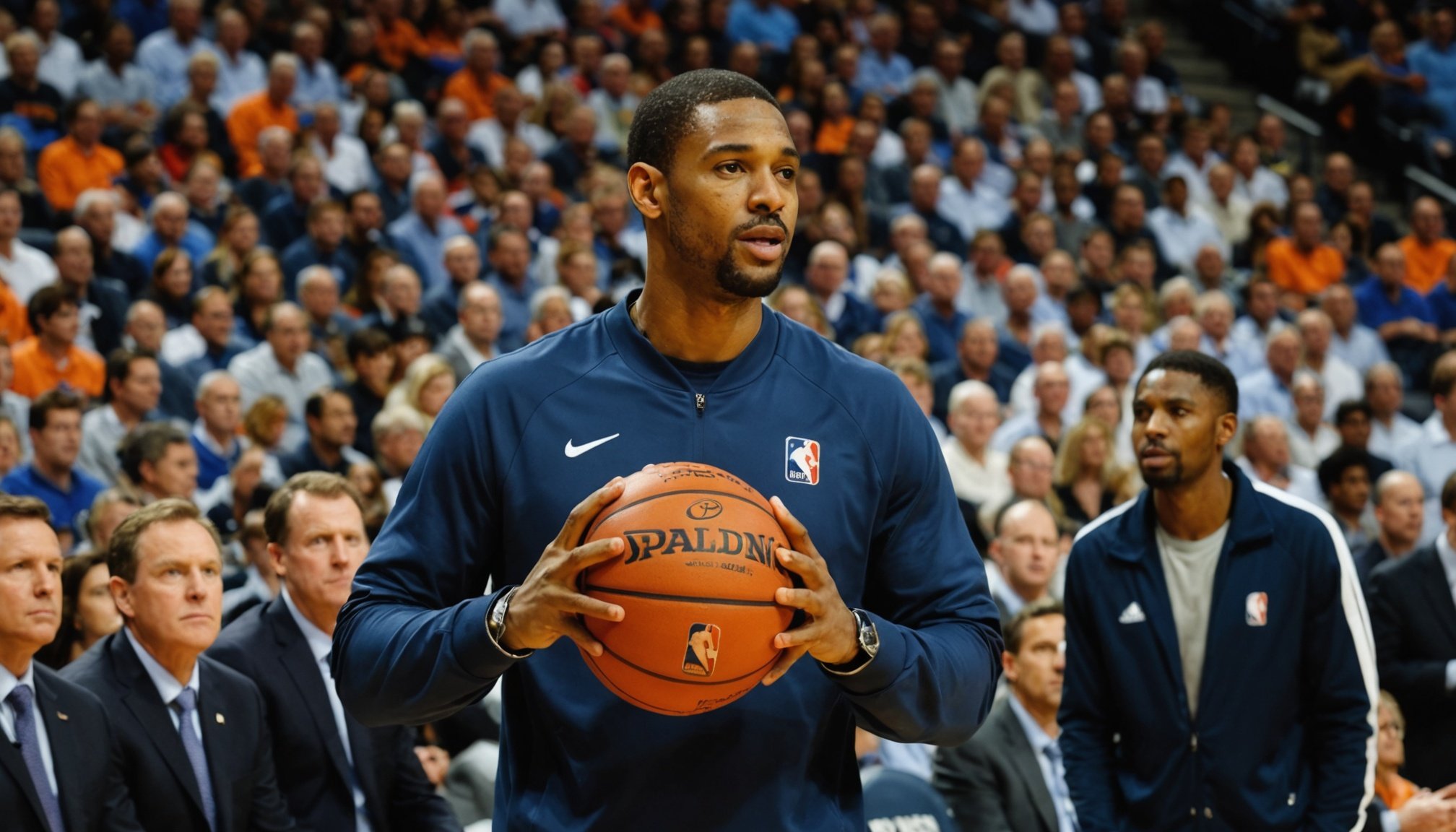Globalization has transformed many facets of life, including sports. The game of basketball is no exception. As it continues to expand internationally, we witness a growing influence of globalization on how the game is played, perceived, and commercialized. In this article, we will explore the implications of globalization for the future of basketball, considering its impact on players, teams, international leagues, and the overall business of the sport.
The Rise of International Players in the NBA
In recent years, the NBA has seen a significant increase in the number of international players. This shift not only enhances the level of competition but also alters the cultural landscape of the game. Countries such as Spain, France, and Australia have produced top-tier talent that has made its mark in the league. The inclusion of these athletes brings a diverse range of playing styles and perspectives to the court.
Also read : Top Ankle Strengthening Exercises for UK Basketball Players: Boost Your Game
The influx of global talent changes how teams recruit and build their rosters. No longer are teams limited to local or national talent; they can now scout and sign players from every corner of the world. This opens up a broader talent pool, ensuring that teams can find the best fit for their specific needs. Additionally, having international players on a team can help expand its fan base, as athletes often draw support from their home countries.
Moreover, the success of international players in the NBA serves as an inspiration for younger generations worldwide. Aspiring athletes can see that playing in the NBA is achievable, regardless of their nationality. This creates a greater demand for basketball programs in various countries, stimulating interest in the game and encouraging youth participation. The games played by these international players contribute to a global conversation about basketball, enriching the cultural fabric of the sport.
Additional reading : Essential Core Strength Workouts for UK Basketball Players: Boost Your Stability on the Court!
The future of basketball will likely witness an even stronger emphasis on international players. As the NBA continues to market itself globally, the league’s appeal will only grow, further promoting the cross-cultural exchange that defines modern basketball.
Impact on Business and Marketing Strategies
The globalization of basketball has significant implications for how the sport is commercialized. As the league reaches audiences in different countries, it must adapt its business and marketing strategies to cater to diverse cultures and preferences. This includes creating localized content, merchandise, and promotional activities that resonate with fans worldwide.
In the past, NBA merchandise was predominantly focused on American teams and players. However, with the rise of international players and the league’s expansion into new markets, the demand for localized merchandise has surged. Fans want jerseys and memorabilia that represent their favorite athletes, regardless of where they are from. As a result, the NBA is now introducing international editions of merchandise to meet this demand, strengthening its global presence.
Furthermore, the advent of digital media has allowed the NBA to reach fans directly through social media platforms and streaming services. This has created new revenue streams and opportunities for engagement. For instance, fans in countries like China and India can watch live games and connect with players in real-time, enriching their experience and building a stronger relationship with the league.
The business model of basketball is evolving into a more global entity. Teams must consider how their actions resonate in various cultures, from sponsorship deals to community outreach. A conscious effort to incorporate global perspectives can enhance a team’s brand and foster loyalty among international fans. As the league continues to grow, we can expect to see even more innovative marketing strategies that embrace the cultural nuances of different regions.
Cultural Exchange and Basketball
Basketball is not just a game; it is a cultural phenomenon that transcends borders. With globalization, the sport has become a platform for cultural exchange, where different traditions and styles can merge. The NBA exemplifies this, as its players bring their unique backgrounds to the league.
An intriguing aspect of this cultural exchange is how the styles of play differ from one region to another. For example, European players are often noted for their technical skills and teamwork, while American players may emphasize athleticism and individual talent. This diversity enriches the game, allowing teams to learn from each other and adapt different strategies.
The cultural impact of basketball extends beyond the court. Players often engage in philanthropic efforts, using their platforms to address social issues in their home countries and worldwide. Initiatives led by these athletes promote education, health, and community development, further solidifying basketball’s role as a force for good in society.
As future generations engage with basketball, they will likely draw inspiration from this cultural melting pot. The sport has the potential to foster understanding and unity among different groups, breaking down barriers and encouraging collaboration. Ultimately, basketball can serve as a bridge between cultures, promoting inclusivity and mutual respect among fans and players alike.
The Future of Basketball Leagues Worldwide
As globalization continues to shape the landscape of sports, the structure of basketball leagues around the world is also evolving. The NBA may be the most recognized league, but it is not the only one. Various countries have developed their own leagues, and the competitive nature of these leagues is intensifying.
International leagues are beginning to adopt strategies similar to those of the NBA, focusing on player development and global scouting. Countries like Spain have established elite leagues that attract talent from various regions, enhancing the quality of competition. Moreover, these leagues are increasingly forming partnerships with the NBA, allowing for talent exchanges and the sharing of best practices.
The future may see an increase in international tournaments that feature the best teams from different leagues, similar to the UEFA Champions League in soccer. Such tournaments would offer players a platform to showcase their skills on a global stage, captivating audiences and expanding the fan base of basketball worldwide. This would also provide opportunities for players to gain experience and exposure, essential for their professional growth.
Furthermore, as interest in basketball grows globally, we can expect to see more investment in grassroots programs. Developing basketball infrastructure in underserved regions will be crucial for nurturing the next generation of talent. By investing in youth programs, leagues can ensure a steady pipeline of skilled players who can compete at higher levels, thus elevating the sport.
The implications of globalization for basketball are profound and multifaceted. We are witnessing a transformation in how the game is played, marketed, and perceived across the globe. The rise of international players, the evolution of business strategies, and the rich cultural exchange all play critical roles in shaping the future of the sport.
As basketball continues to expand its reach, it is essential for all stakeholders, including teams, players, and fans, to embrace the opportunities that come with this globalization. The game of basketball is not just a sport; it is a global community that has the potential to inspire positive change and foster unity.
Looking ahead, the future of basketball promises to be exciting, as it brings together diverse cultures, innovative business models, and a commitment to excellence. Whether you are a casual fan or a dedicated follower of the sport, there is no denying the ever-growing impact of globalization on basketball and its bright future.











